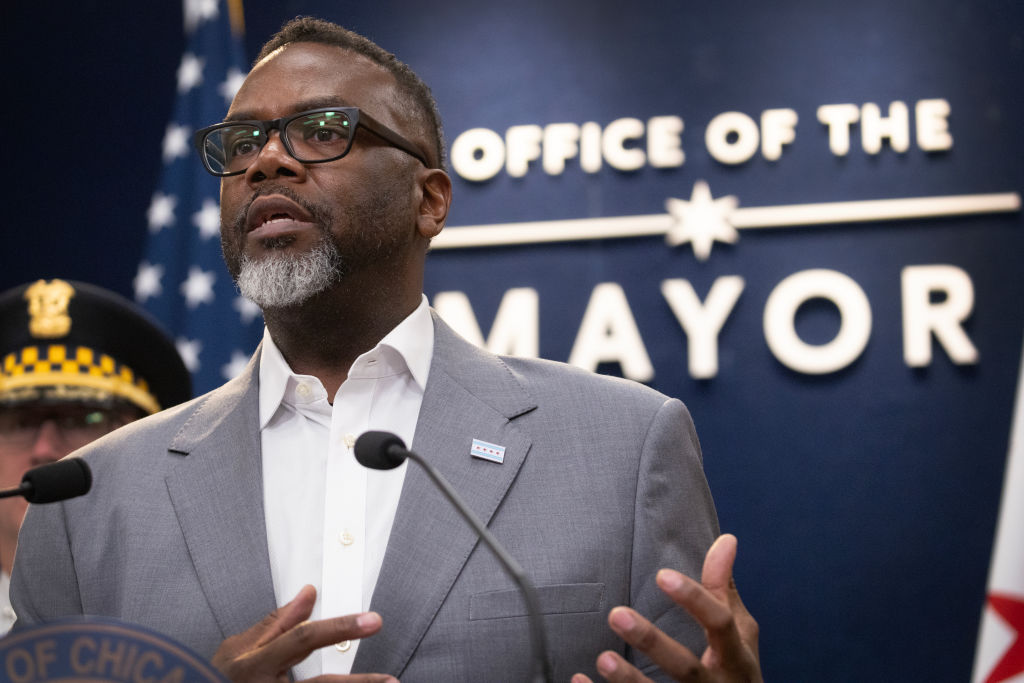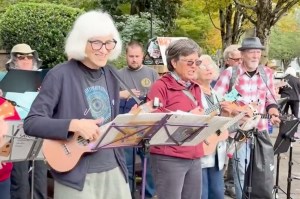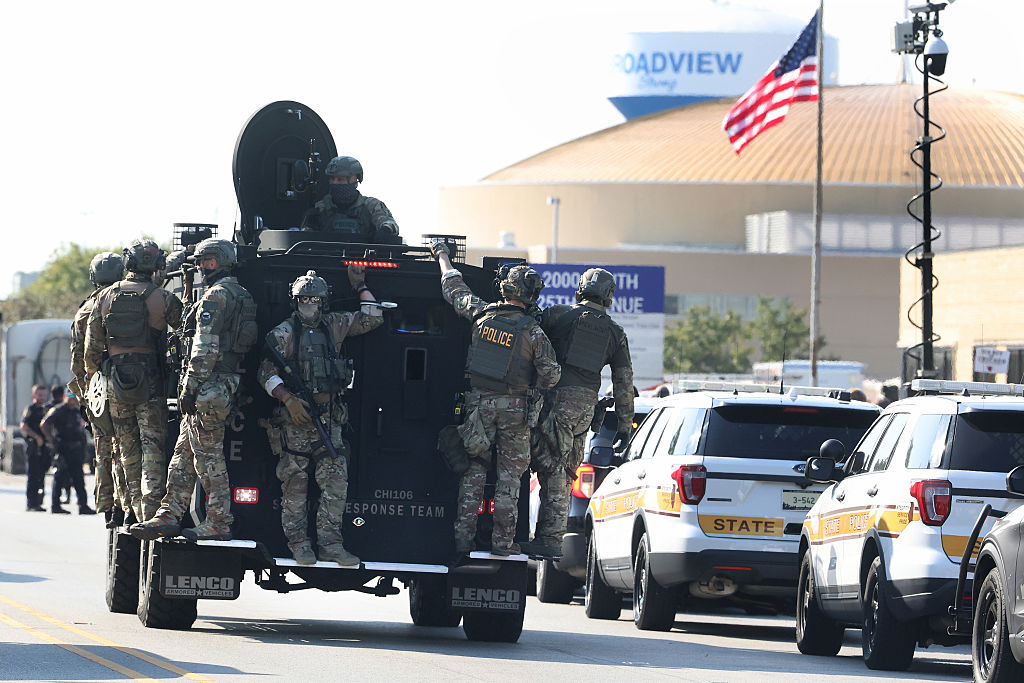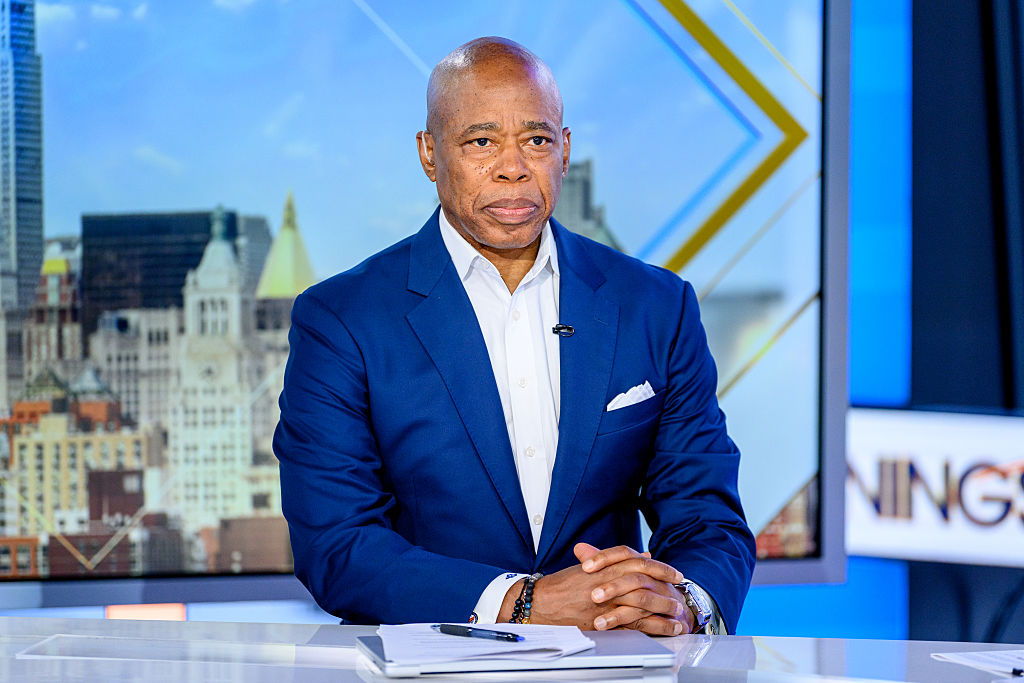As the song goes: “Chicago, that toddlin’ town.” It was certainly toddlin’ in the 1950s and 1960s, when that song was a hit for Frank Sinatra. The city had bounced back from the Great Depression, begun building skyscrapers again and renewed its status as a vibrant financial and commercial hub. But Chicago has gone from toddlin’ to totterin’, thanks largely to incompetent governance by a succession of local officials – and far better leadership and lower taxes elsewhere in the country, in the places people are moving to.
The city’s latest bungler, Mayor Brandon Johnson, was an apparatchik in the Chicago Teachers Union, the most powerful union in the state of Illinois. The CTU is the dominant power in Chicago and, in many ways, a successor to the city’s extinct political machine. Not surprisingly, Mayor Johnson gives the union everything it wants and stocks the school board with toadies who won’t push back. The students are still failing – the numbers are catastrophic despite high costs per student – but the teachers union is thriving. It’s a scandal in plain sight. Gone are the days of the old Democratic political machine headed by Mayor Richard J. Daley in the 1950s and 1960s and, years later, by his son Richie. The elder Daley ran a patronage system, which gave jobs to “friends of the machine” in return for their getting out the vote. They went from block to block, house to house, sitting in living rooms and asking voters what they wanted. They relayed those requests up the line and made sure they were fulfilled. Voters were expected to reciprocate by pulling the lever for a straight Democratic ticket. A voter who stayed too long in the voting booth had, for some inexplicable reason, failed to pull the straight-party lever. The local patronage worker would be held responsible for getting out the vote and getting the totals right.
The result was a city that worked, despite the corruption and rampant segregation. It was also a city that adapted to the new, post-World War Two economy, much like Pittsburgh after the steel mills closed.
What broke the Chicago political machine? The answer lies in two federal court rulings beginning in the early 1970s, which cut off the patronage system’s lifeblood. One prevented the city from hiring workers based on their political connections. The second stopped the city from firing them for similar reasons. Federal monitors were installed to ensure compliance. They remained for decades. “Nothing,” Milton Friedman once said, “is as permanent as a temporary government program.”
Kickbacks also helped, which is why a quarter of all Chicago city aldermen end up in prison
Naturally, city politicians tried to work around these new constraints. Their best strategy was to outsource urban jobs to private contractors, who were, and are, political allies and donors. Kickbacks also helped, which is why around a quarter of all Chicago city aldermen end up in prison. Their replacements stay until they, too, face a jury of their peers.
So far, their solution to these pesky federal prosecutors is to avoid using cell phones or sitting in restaurant booths that are bugged. That strategy is only partially successful because the first guy who is caught usually agrees to wear a wire and entrap all his colleagues. (It is worth noting that almost none of these indictments come from local prosecutors. Gee. Go figure.)
Corruption like this is hardly new to Chicago. The late great columnist Mike Royko said the city motto should be Ubi Est Mea? (“Where’s mine?”). No need to change that now. What’s new is the stunning incompetence of Chicago’s current leaders, their failure to deliver quality services despite high taxes and their utter inability to adapt to new economic realities.
Rather than cite the myriad examples of citywide troubles, let me point to a couple of small but illuminating ones near my home on the city’s South Side, near the Museum of Science and the University of Chicago. They illustrate how Chicago, once known as “the city that works,” no longer does.
Since there are lots of small children on my block, parents asked for speed bumps to be installed to protect them from traffic. This should be quick and cheap – and greatly appreciated. Still, it took years to get the speed bumps approved and installed.
After years of inaction, a crew finally arrived and cut two small trench lines in the pavement to prepare for the installation of the speed bumps. Everyone expected the job to be finished in a few days. Foolish optimism. Months passed with no further work. Then, several weeks ago, “no parking” signs went up on the street, in preparation for the long-awaited installation. Again, nothing happened. The signs stayed up for three or four weeks. Finally, a few days ago, a crew arrived and completed the work. It took them less than half a day.
Let’s compare that timeline with how long it took to build the Pentagon. It took 18 months to construct what was then the world’s largest office building. Chicago city workers couldn’t buy and install a roll of toilet paper in that time.
Our block is hardly unique. On the next block, the street looks like something in rural Ecuador. It is an archipelago of potholes, dozens and dozens of them, with sad strings of asphalt in between. It’s been that way for years.
What about other city services? Dismal. Our area near the university is safe only because the school provides private policing for the whole neighborhood. The university pays for the cars that patrol the area and security guards who stand on many street corners. No one counts on city police. If reinforcements are needed, residents call the university police, who arrive quickly. Their dispatcher relays the message to city police, who arrive at some point during Donald Trump’s current term. If the problem is not an emergency and you dial 311, you can wait hours. I speak from experience. If their voice recording were honest, it would say, “Your call is not important to us. You can wait online and grow a beard if you don’t have anything better to do.”
The city’s finances are just as troubled. They were temporarily saved by Covid funding but crashed when that manna from Washington ended. The thud could be heard on Chicago public transit, a series of public entities distinct from the city itself. The transit system is antiquated, thanks to years of poor maintenance, and dangerous, thanks to thugs who prey on passengers with few police to stop them. The stations are also resting places for the homeless. If some bad guys are actually arrested – say, for shooting a rival gang member – prosecutors and judges work efficiently to get them back on the streets as quickly as possible, no matter how many prior offenses the perps have committed. Deterrence is non-existent. To call this “social justice” is Orwellian.
Officials can no longer kick the can down the road. The road has ended at the edge of a fiscal cliff
Transit use is down dramatically, partly because of the danger but mostly because of remote work and business departures for more favorable climes. That decline has ratcheted up the pressure on transit budgets. The city’s finances have also suffered, thanks to soaring vacancy rates in commercial buildings and empty storefronts in Chicago’s downtown shopping districts.
The impact on public revenues has been devastating. The local transit budget is expected to run annual deficits of around $750 million, with no end in sight. Their leaders and union workers are begging the state of Illinois for cash to cover the shortfall, but they aren’t getting it. What legislator from Peoria wants to shower money on Chicago? Besides, the state itself is broke. (Its solution, naturally, is to raise taxes again.)
If you think transit officials would grasp the structural problems and adapt quickly, forget it. They simply defer maintenance, as they calculate whether they will lose more votes by raising taxes or cutting services. The problem they now face is that they can no longer kick the can down the road. The road has ended at the edge of a fiscal cliff. What’s true for public transit is equally true for the city of Chicago’s budget. The arrival of illegal immigrants has added significantly to those problems. African Americans have been pitted against the immigrants and their progressive supporters for shares of the budget. (Chicago is a “sanctuary city” but, ironically, Trump’s deportation efforts will help the city’s finances. Johnson showed his appreciation by calling Trump a “monster.”)
How do local pols survive in this toxic environment, in the interval between election and jail term? They do it mostly by relying on identity politics, progressive sloganeering and generous handouts to public sector unions – especially the teachers.
During Mayor Johnson’s campaign, his friends and colleagues in the teachers union plastered the city with his posters and went door-to-door to get out the vote. For them, it was an excellent choice since he grants them every wish. For everyone else, it was a disaster. He is utterly incompetent and is now under federal investigation after a public speech in which he said he prefers to hire black people – and proceeded to describe what he’d done to prove it. Surprisingly, there are laws against that kind of discrimination and, at long last, a Department of Justice that enforces them. Racial-identity politics isn’t enough to help Johnson’s approval rating, which is now below 10 percent. Gonorrhea polls better.
Johnson’s only prop is the CTU. It has effectively replaced the old Daley machine as the city’s political foot soldiers. The difference is that this new machine provides only low-quality services, poor schools, dangerous neighborhoods, high taxes, progressive slogans and a tangle of stifling regulations. That toxic combination is driving away companies and their employees, sending them fleeing to Nashville, Austin, Dallas, Miami and other low-tax, business-friendly environments.
This story about Chicago applies to city after city. It takes exceptional incompetence to ruin a beautiful city like San Francisco. But they managed to do it. It takes exceptional incompetence to ruin a beautiful state like California, but they managed to do it. For the first time since the Gold Rush, emigration has exceeded immigration. San Francisco finally elected a competent new mayor to turn itself around. Los Angeles, on the other hand, is still trudging down the same worn path, headed for the cliff. Just look at how long they say it will take to rebuild after the Palisades fire.
The good news is that America is not, on the whole, like these sclerotic cities. People are voting with their feet and their U-Hauls. Our country has a dynamic economy, with cities and states where local politicians are eager to attract businesses and their employees. Chicago used to be that way. It isn’t anymore. And the people who run the city seem hellbent on making it worse.
This article was originally published in The Spectator’s August 2025 World edition.


























Leave a Reply